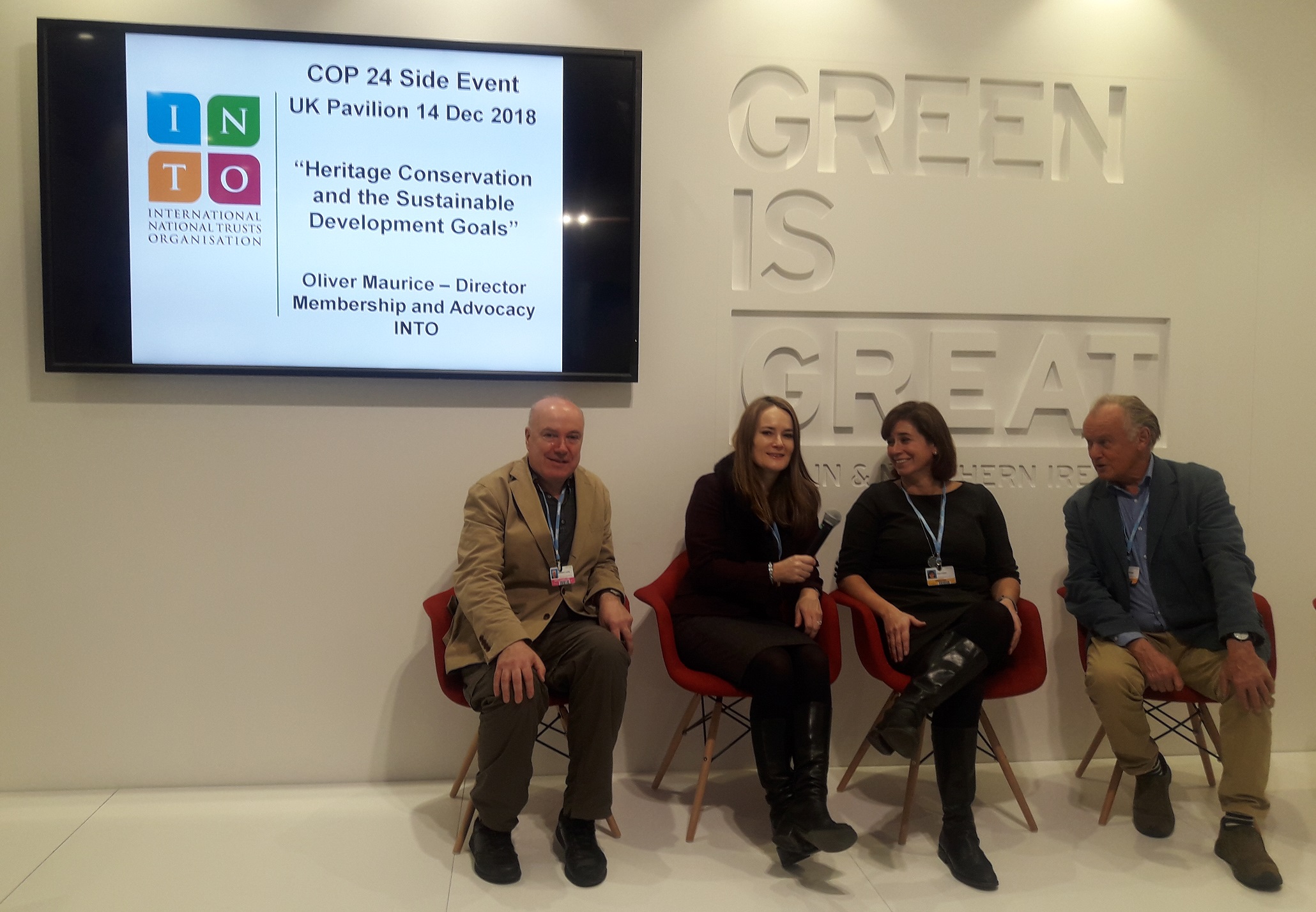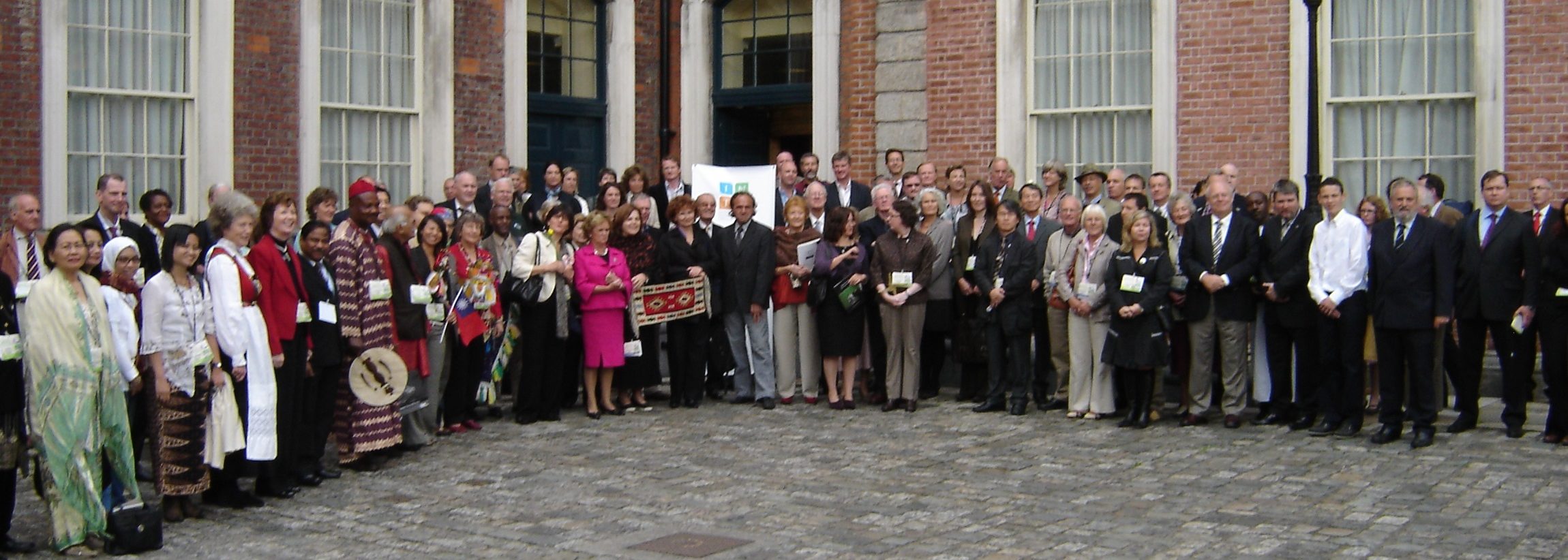-
Climate reflections (Weekly blog, 6 October 2019)
Posted on October 6, 2019A blog by Catherine Leonard, Secretary-General
Climate change was the theme of a podcast I recorded for the ROCK project this week. ROCK is developing new approaches for the regeneration and reuse of historic city centres. It’s an EU Horizon 2020 funded project. The podcasts are one of the project outputs.
I met Project Manager Lucy Latham from Julie’s Bicycle at the Katowice COP last year. And we’ve been meaning to do this recording ever since. So it was really good to finally do it!

Climate activism
We recorded the podcast on 27 September. The day of the second climate strike. Which was very timely as one of the questions was: When did you start to engage with the topic of climate change? Well, I had to confess to being not nearly so well-informed and proactive as young people today. As a child growing up in the 1970s and 80s we knew about the ozone layer and CFCs. But I don’t think we thought we could do much about it. Apart from not buying aerosols and recycling.
The climate strikes are showing us all that individual action really can make a difference. So often we feel overwhelmed by climate change. We hold our heads in our hands and wonder what we can possibly do, when we are so small and insignificant. Well, this is something we can do; make our voices heard.
A holistic approach
I remember thinking when I got my first job at the National Trust in 1999 that it brought together all the things I love. Art, history, the environment and languages (although that was rather unique to my role!). But the fact that the National Trust works in cultural heritage and nature I think is really important. It meant that from day one, we were as concerned about environmental sustainability as protecting old buildings, to put it simply.
I started working for INTO in 2008. And climate change was one of the key global issues that we could all coalesce around and contribute to. In fact our first INTO Conference in 2009 had as its theme ‘Heritage Conservation in a Changing Climate’. And we worked on a statement coming out of the conference that would provide a focus for our future work. Moreover, something we could take to the COP in Copenhagen later that year.
So climate change has been on INTO’s agenda since the very start.

Delegates at the INTO Conference in Dublin
Sustainability in the NT movement
The morning of the recording, I read a tweet from one of our INTO Trustees. Natalie Bull, Executive Director of the National Trust for Canada, was lamenting the loss of another urban historic building. She said something along the lines of ‘it’s ironic that we all dutifully recycle our pop cans but can’t seem to get our act together to systematically reuse existing buildings – arguably our largest consumer good’.
And our colleagues at the National Trust for Historic Preservation in the US also have a real focus on sustainability. How vital older buildings are to making cities work for everyone. More recently, they’ve done work to position heritage conservation in the larger context. It’s only one part of the various elements that make a community liveable and vibrant. So their work on ReUrbanism brings together other fields like planning, nature conservation and social justice to help respond to the issues cities face today.
The climate change work of National Trusts around the world is threefold – mitigation, adaptation and education. We have a real opportunity to use our cultural heritage to mitigate and adapt to climate change. We can introduce sustainability measures at the sites we own and manage. Like generating renewable energy for ourselves (historic houses can have photovoltaics!). Or reducing our energy consumption or managing nature for carbon storage. We can use our sites all over the world as mini laboratories: monitoring change, gathering information and testing new approaches.
A climate of knowledge sharing
We can also harness indigenous knowledge and traditional practices in respect of climate change and sustainable development. Like the Zimbabwe National Trust‘s agricultural training centre at their La Rochelle property. Here in the Eastern Highlands, farmers are passing traditional knowledge down to the next generation. These are also ways cultural heritage can build resilience for change to come.

Chamomile growing at La Rochelle
We also have a really key role in education. Most INTO members open heritage sites to the public and there’s an opportunity to speak to visitors about the risks and impacts of climate change. We can use cultural heritage as a means to communicate to people. Moreover we can try and change their behaviour as a result of their interaction with our places.
Which brings me back to the start. We all wonder what we can do as individuals in this fight. But by being part of a wider community – a global community of people who love National Trust places – perhaps that’s a safe space for people to change their behaviour?
So, my recommendation would be: Don’t get discouraged; get connected. Seek out some like-minded people and work together to change the future.
You can find our more about the Climate Heritage Network launch later this month here.
And our Report on the Sustainable Development Goals can be downloaded here.

 44 (0)20 7824 7157
44 (0)20 7824 7157